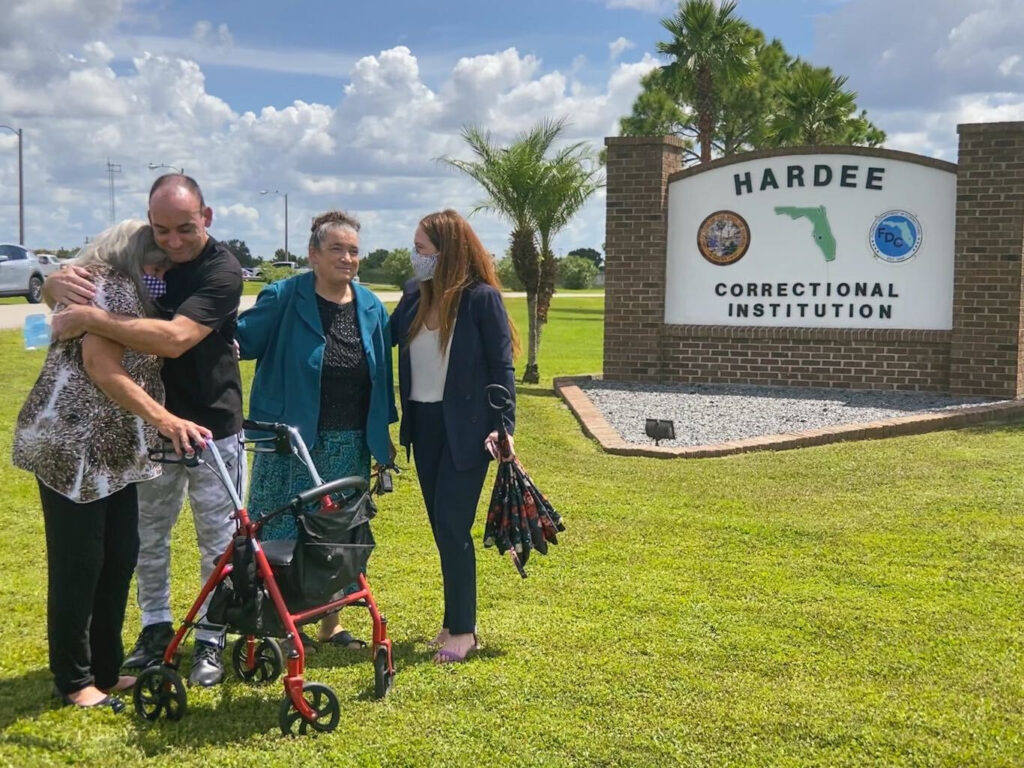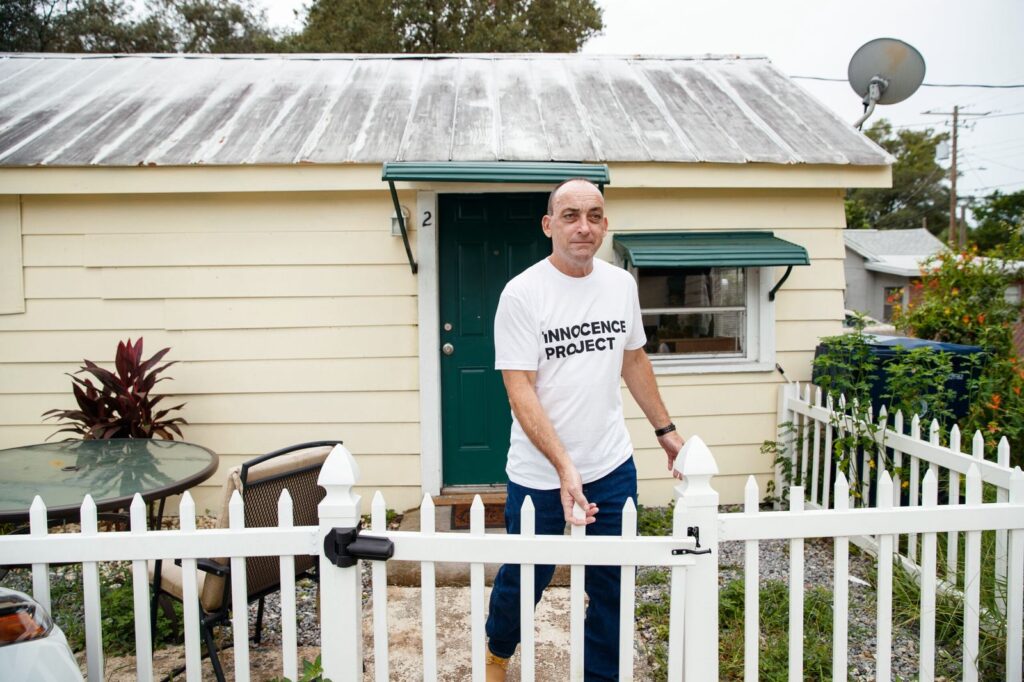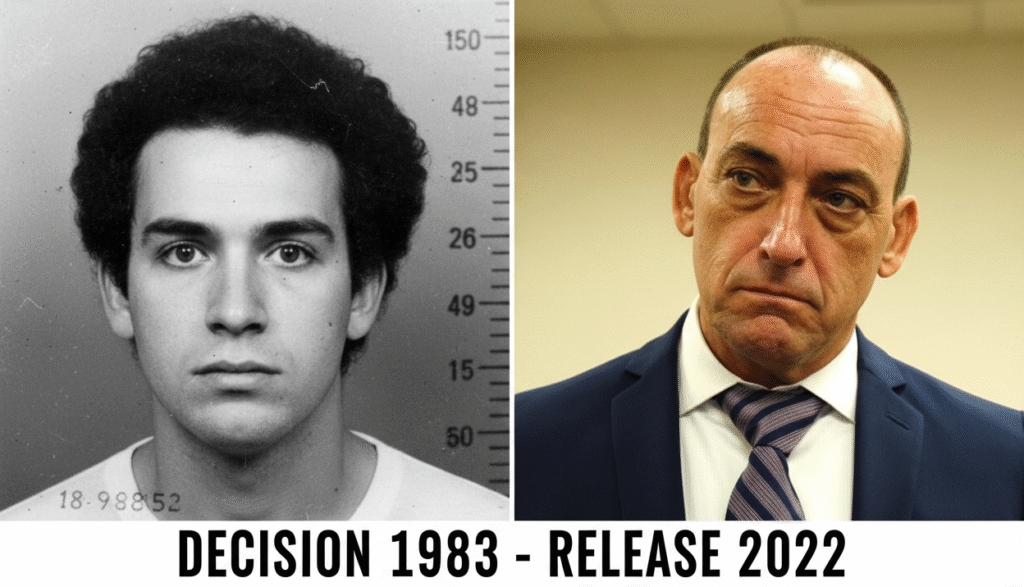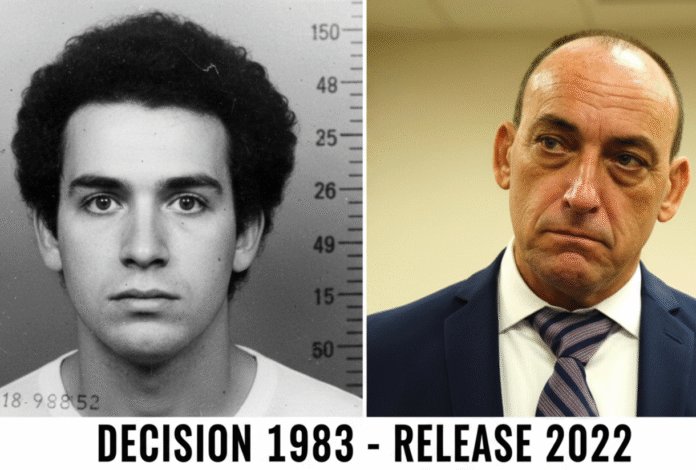A Florida man who spent nearly four decades locked away for a brutal crime he didn’t commit has finally been cleared – with a judge openly apologising for the justice system’s catastrophic failure.
Robert DuBoise, now 55, walked out of prison last month after DNA evidence definitively proved he had nothing to do with the 1983 rape and murder of 19-year-old Barbara Grams in Tampa. On Monday, a court hearing made his freedom official, wiping away his convictions and removing him from Florida’s sex offender registry.

“This court has failed you for 37 years,” Hillsborough County Circuit Judge Christopher Nash told DuBoise during the emotional remote hearing. “Today, it has finally succeeded.”
DuBoise was just 18 years old when Grams was sexually assaulted and beaten to death while walking home from her job at a Tampa shopping mall. He was arrested, convicted, and initially sentenced to death before having his sentence reduced to life behind bars.
The case against him rested on two deeply flawed pillars: testimony from a jailhouse informant who has since been thoroughly discredited, and bite mark analysis that experts now say was utterly unreliable. During Monday’s hearing, forensic experts revealed that police had used beeswax to take an impression of DuBoise’s teeth – a primitive and inaccurate method. That supposed bite mark on the victim’s left cheek, which prosecutors presented as damning evidence at trial, has now been determined to be worthless as proof.
Modern DNA testing has eliminated DuBoise as a suspect. Forensic DNA analyst Nancy Wilson testified that genetic evidence from the crime scene showed at least two people were involved in the assault on Grams – and neither of them was DuBoise. “Robert DuBoise is eliminated as a contributor to any of the evidence,” Wilson stated plainly. The revelation means that whoever actually killed the teenager 37 years ago has never been caught, and the case will return to the cold case files.

DuBoise’s wrongful conviction cost him most of his adult life. He spent years on Death Row before his sentence was reduced, then endured stretches in solitary confinement as he was moved through six different Florida prisons. Through it all, he never stopped insisting he was innocent. “The state took 37 years away from Robert,” said Susan Friedman, the Innocence Project attorney who fought for his freedom.
DuBoise was released on 27 August from Hardee Correctional Institution in central Florida, where he was reunited with his mother and sister after being apart for decades. He’s now living at a Tampa centre that provides housing for the wrongfully imprisoned, learning how to navigate modern life – from shopping at Walmart to using an iPhone.
Speaking briefly during Monday’s hearing, dressed in a suit and tie he’d only recently acquired, DuBoise acknowledged his complicated relationship with the system that failed him so badly. “I haven’t always trusted the judicial system because I’ve had a lot of roadblocks thrown in my path,” he said. “There are really true-hearted people in these offices now. It’s been amazing. I’m just very grateful to all of you.”
Hillsborough County State Attorney Andrew Warren, whose office worked alongside the Innocence Project to free DuBoise, acknowledged the enormity of the injustice. “It’s been 37 years,” Warren said. “We’re righting this wrong today, finally.”

But DuBoise’s case may not be an isolated tragedy. Warren announced that his office is now reviewing other Tampa-area convictions that relied heavily on bite mark evidence—a forensic technique that has been widely debunked by modern science. “This won’t be easy, but it will be worth it,” Warren said in a statement. “Wrongful convictions deprive victims and their families of justice; they deserve the truth – not false closure based on a false story. Beyond that, wrongful convictions threaten public safety, putting an innocent person behind bars while the actual person who committed the crime goes free.”
At 55, DuBoise faces the daunting task of rebuilding a life that was stolen from him when he was barely more than a boy. He missed watching technology transform society, missed building a career, missed having a family of his own. The Innocence Project, which has freed hundreds of wrongfully convicted people through DNA evidence, continues to fight for others like DuBoise who are trapped behind bars for crimes they didn’t commit.
For Barbara Grams’ family, the exoneration brings a painful new reality: justice for their loved one remains elusive, and her real killer has been free for nearly four decades while an innocent man suffered in his place

